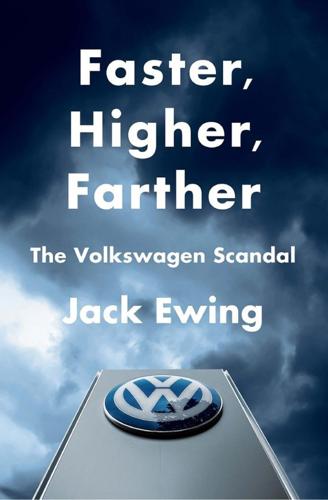
Faster, Higher, Farther: How One of the World's Largest Automakers Committed a Massive and Stunning Fraud
by
Jack Ewing
Published 22 May 2017
CHAPTER 15: EXPOSURE 176 reported directly to Winterkorn: Declaration of Martin Winterkorn, filed as an exhibit in Winterkorn’s Motion to Dismiss the Consolidated Securities Class Action Complaint, August 1, 2016. 176 Gottweis was among the first: State of New York v. Volkswagen AG et al. (lawsuit filed by New York Attorney General Eric T. Schneiderman), July 19, 2016, https://consumermediallc.files.wordpress.com/2016/07/new-york-vw-complaint-7-19.pdf, p. 36. 176 included in the packet: Cover letter from Frank Tuch, head of group quality assurance, to Martin Winterkorn, May 23, 2014, filed as an exhibit in Volkswagen’s Motion to Dismiss the Consolidated Securities Class Action Complaint, August 1, 2016.
…
Customers could watch their cars being assembled by workers in white overalls, then drive their new Phaeton home. It was auto manufacturing as performance art. “The entire assembly of the Phaeton is made into a public spectacle,” Volkswagen said. Piëch entrusted Phaeton development to one of his closest protégés, Martin Winterkorn, who had been head of quality control at Audi and was known for his attention to detail as well as his penchant for yelling when anything displeased him. After five years of development, Phaeton production began in 2001. The reviewers were impressed. A writer for Car and Driver found the Phaeton twelve-cylinder engine so quiet he wasn’t sure that the key worked.
…
In an interview in March 2006, Piëch told the Wall Street Journal that renewal of Pischetsrieder’s contract was an “open issue” because of worker opposition to his policies. That icy assessment, rather than an expression of support, signaled Pischetsrieder’s doom. By the end of the year, he was gone, followed soon afterward by Bernhard. The new chief executive appointed by the supervisory board was Martin Winterkorn, the man who had overseen development of the Phaeton and was head of Audi. In contrast to Pischetsrieder, Winterkorn had a reputation for being obedient to Piëch. He could be counted on to forcefully execute the chairman’s wishes. So in the end it was Pischetsrieder, the reformer, who wound up leaving in the wake of the prostitution affair.
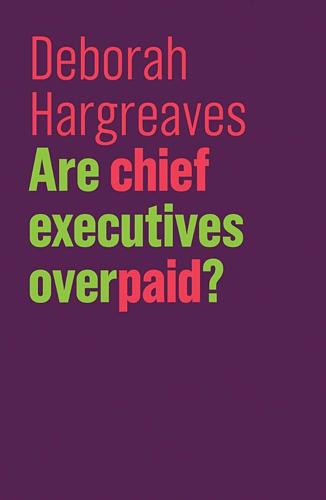
Are Chief Executives Overpaid?
by
Deborah Hargreaves
Published 29 Nov 2018
When we interviewed employee representatives in 2013,4 Martina Klee from Deutsche Bank’s supervisory board told us: ‘My expertise is to tell the board what issues really touch the workforce and what they think.’ After the financial crisis, the supervisory board was given the additional power of setting executive pay. In 2012, in one of the first instances of a supervisory board exercising its new might, the staff representatives led a move to reduce the package for Martin Winterkorn, the then chief executive of Volkswagen by 20 per cent, even though it was a year in which the carmaker had done extremely well. The employees felt it was insensitive to be paying him so much at a time of national austerity and managed to convince the shareholders to vote with them. VW has not turned out to be a model of good corporate governance, however, and for the past couple of years, it has been engulfed in an emissions scandal that has led to high-profile resignations and could still result in criminal prosecutions.
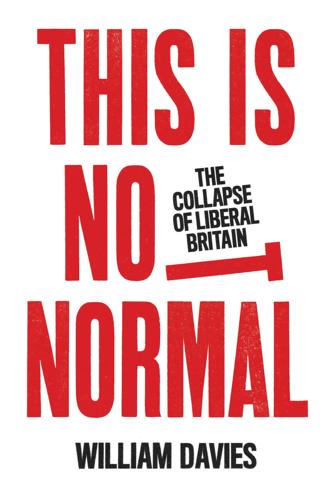
This Is Not Normal: The Collapse of Liberal Britain
by
William Davies
Published 28 Sep 2020
Sure enough, four senior executives were suspended the same month and three were charged with fraud two years later. A year later, it emerged that Volkswagen had systematically and deliberately tinkered with emissions controls in their vehicles, so as to dupe regulators in tests, but then pollute liberally the rest of the time. The CEO, Martin Winterkorn, resigned. ‘We didn’t really learn anything from WikiLeaks we didn’t already presume to be true’, the philosopher Slavoj Žižek observed in 2014. ‘But it is one thing to know it in general and another to get concrete data.’11 The nature of all these scandals suggests the emergence of a new form of ‘facts’, in the shape of a leaked archive – one that, crucially, does not depend on trusting the second-hand report of a journalist or official.
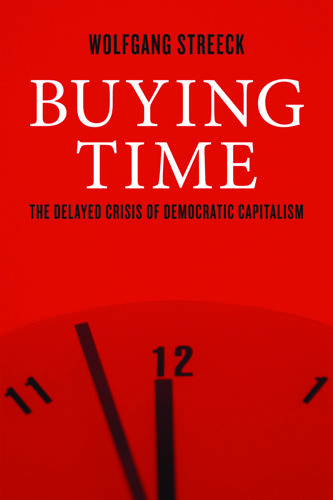
Buying Time: The Delayed Crisis of Democratic Capitalism
by
Wolfgang Streeck
Published 1 Jan 2013
Pierson, Winner-Take-All Politics: How Washington Made the Rich Richer – and Turned Its Back on the Middle Class, New York: Simon & Schuster, 2011. 15 See the figures in W. Streeck, ‘German Capitalism: Does it Exist? Can it Survive?’, New Political Economy, vol. 2/2, 1997, pp. 237–56. The case of Volkswagen chairman Martin Winterkorn, who received a total income of 18.3 million euros in 2011, shows that Germany is catching up fast with the USA. 16 A. Schäfer, ‘Die Folgen sozialer Ungleichheit für die Demokratie in Westeuropa’, Zeitschrift für vergleichende Politikwissenschaft, vol. 4/1, 2010, pp. 131–56; A. Schäfer and W.
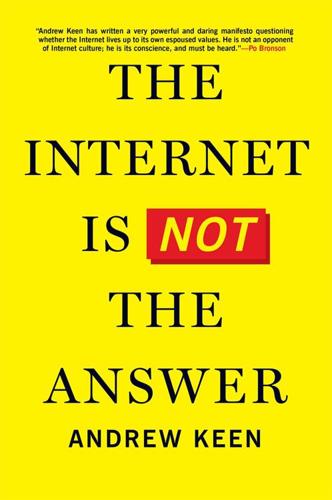
The Internet Is Not the Answer
by
Andrew Keen
Published 5 Jan 2015
Big Brother seemed ubiquitous at the Venetian. Reporting about CES, the Guardian’s Dan Gillmor warned that networked televisions that “watch us” are “closing in on Orwell’s nightmarish Big Brother vision.”32 Even industry executives are fearful of the Internet of Things’s impact on privacy, with Martin Winterkorn, the CEO of Volkswagen, warning in March 2014 that the connected car of the future “must not become a data monster.”33 But there is one fundamental difference between the Internet of Things and Erich Mielke’s twentieth-century Big Brother surveillance state, one thing distinguishing today’s networked society from Orwell’s 1984.

Content Provider: Selected Short Prose Pieces, 2011–2016
by
Stewart Lee
Published 1 Aug 2016
Here was Jeremy Clarkson, innocently piling his fist into a selfish minion’s face; and here was a selfish minion, stupidly allowing his face to connect with Jeremy Clarkson’s fist, denying us future Top Gear; and here was David Cameron, in farm girl’s frock and bonnet, borne aloft in plywood pigsty, fair Chloris, innocent and pleased; and here, a papier mâché Martin Winterkorn, head of Volkswagen, strangling the green earth with his clean hands. And so on, and so on, a multitude of villains and no clear candidate for the conflagration. And then a shrill voice cut through the commotion: “Burn them all.” It was the little boy from the window, in pantaloons and waistcoat, with a cold authority beyond his years.
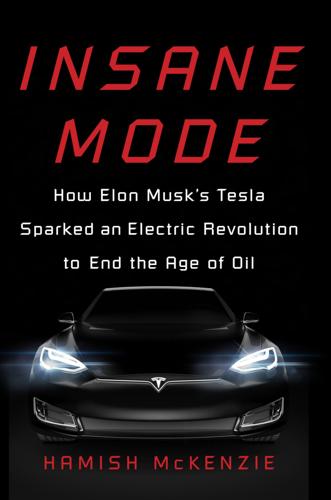
Insane Mode: How Elon Musk's Tesla Sparked an Electric Revolution to End the Age of Oil
by
Hamish McKenzie
Published 30 Sep 2017
“The Volkswagen supervisory board learned of the manipulation of emissions from diesel motors with great dismay,” said Huber, the board’s acting chairman. He paused to cough into his hand. To his left was fellow board member Stephan Weil, the governor of Lower Saxony state, which had a 20 percent stake in the company. To Huber’s right stood Martin Winterkorn, Volkswagen’s sixty-eight-year-old CEO, who had been in the position since 2007. As the biggest crisis in the automaker’s history unfolded, Winterkorn had refused to resign. “We are aware not only of the economic damage that it has caused, but also above all else of the loss of confidence among many Volkswagen customers worldwide,” Huber continued.
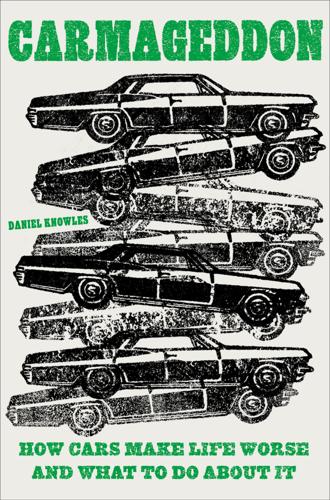
Carmageddon: How Cars Make Life Worse and What to Do About It
by
Daniel Knowles
Published 27 Mar 2023
From March 2015 to October of that year, VW’s share price fell by around 50 percent. When the details of the monkey gassing emerged in 2018, Germany’s chancellor, Angela Merkel, expressed her horror. “These tests on monkeys or even humans cannot be justified ethically in any way,” she said. Martin Winterkorn, VW’s CEO, gave a speech in which he said that “millions of people around the world trust our brands, our cars, and our technologies. I am so sorry that we have betrayed this confidence.” And yet in the long run, what did it actually cost VW? For all of their shock, the German authorities were certainly not going to do anything that would damage the viability of one of their biggest industries.

Messy: The Power of Disorder to Transform Our Lives
by
Tim Harford
Published 3 Oct 2016
The mobility and unpredictability of the SWAT team is what many regulators desperately need. • • • In September 2015, Volkswagen, one of the largest car manufacturers in the world, was caught cheating on U.S. emissions tests. Public opinion was shocked. Shares in the German car giant plunged; the boss, Martin Winterkorn, resigned; and Germans worried that the reputation of every manufacturer in the nation might be tarnished by association with VW.25 How was such cheating possible? Manufacturers must submit to a program of laboratory tests designed to ensure that the engines emit low levels of nitrogen oxides, gasses that can cause a variety of local pollution problems—acid rain, smog, and soot, damaging agricultural crops and causing breathing difficulties in elderly people and children, sometimes with fatal results.

Choked: Life and Breath in the Age of Air Pollution
by
Beth Gardiner
Published 18 Apr 2019
At first, the company blamed “the grave errors of very few,” but it quickly became clear the evasion was too systematic to have been carried out by a handful of rogue engineers. In the United States, VW eventually agreed to pay close to $30 billion in penalties and settlements, compensating drivers and recalling and buying back cars. CEO Martin Winterkorn said he hadn’t known of the cheating, but he resigned and was later charged criminally (although he’s unlikely to be extradited). Other high-ranking executives were indicted, too—one was apprehended on vacation in Florida—and guilty pleas followed. The company also pleaded guilty, to charges including conspiracy to violate the Clean Air Act and obstruction of justice.
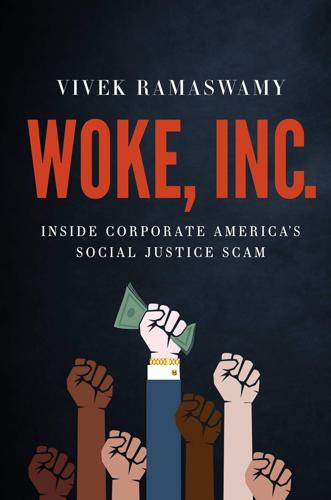
Woke, Inc: Inside Corporate America's Social Justice Scam
by
Vivek Ramaswamy
Published 16 Aug 2021
In September 2015, the Dow Jones Sustainability Index (DJSI) named Volkswagen the most sustainable automobile company in the world. It had earned a near-perfect score, with full marks for “codes of conduct, compliance and anti-corruption, as well as innovation management and climate change strategy.”9 Volkswagen Chairman and CEO Martin Winterkorn had spearheaded Volkswagen’s transformation from a middling automaker to the world’s largest in just a few years at the helm. By 2014, Winterkorn had successfully steered Volkswagen to the top with his climate-conscious strategy. In an annual letter to shareholders, he said, “The automotive industry is currently experiencing fundamental change.
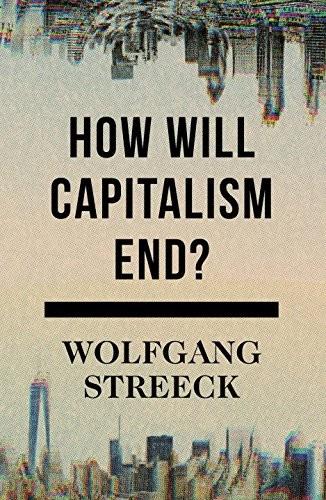
How Will Capitalism End?
by
Wolfgang Streeck
Published 8 Nov 2016
Doping among athletes competing for ever-increasing sums of prize money and even more lucrative advertising contracts in worldwide winner-take-all markets is accompanied by corruption among officials of international sports associations, some of whom are reported to have been paid huge sums by athletes and their management for suppressing the results of positive doping tests, and by corporations and governments for locating events in places they prefer. Officials also own firms that sell television rights in the events their associations organize.55 Finally, take a global corporation like Volkswagen (which, incidentally, around 2010 raised the salary of its CEO, Martin Winterkorn, to an, in German terms, hitherto unimaginable €15 million per annum). In 2015 it became apparent that Volkswagen had engaged in a massive pattern of fraud in relation to both customers and public authorities. The purpose was, essentially, to save on research and development to meet environmental standards, to be able to spend more on other features more likely to attract sales in a highly competitive global automobile market suffering from saturation and overcapacity.
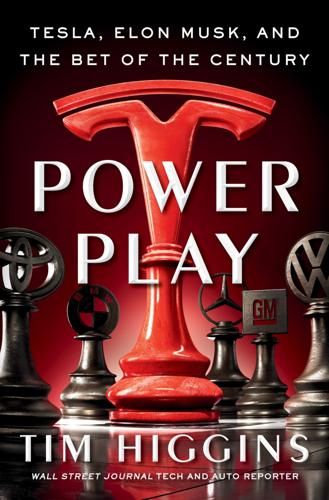
Power Play: Tesla, Elon Musk, and the Bet of the Century
by
Tim Higgins
Published 2 Aug 2021
Musk had sent him to Germany to try to sell the German company on a supplier deal similar to the one Daimler had agreed to. Straubel’s team had equipped a Volkswagen Golf with an electric powertrain and taken the vehicle to Germany to demonstrate how they could work together, walking through the benefits of lithium-ion cells. Volkswagen CEO Martin Winterkorn took drives around a test track at full speed in the Roadster that they had also brought along. The Toyota deal was announced on a day of Volkswagen meetings. Winterkorn summoned Straubel to his office. “What the hell just happened?” he demanded. Straubel had no idea what to say. Any potential deal between the two companies instantly died—already Winterkorn’s team had been privately objecting to a partnership, in part, over safety worries about lithium-ion cells but also because the idea hadn’t been invented in house.